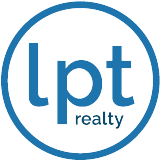

Use a Buyer's Agent
It’s important that you choose an experienced agent who is there for you. Your agent should be actively finding you potential homes, keeping you informed of the entire process, negotiating furiously on your behalf, and answering all of your questions with competence and speed. First, find an agent
Read More

The Advantages of Different Types of Mortgage Lenders
What kind of lender is best? If you ask a loan officer, “What kind of lender is best?” the answer will be whatever kind of company he works for and he will give you a list of reasons why. If you meet the same loan officer years later, and he works for a different kind of lender, he will give you a
Read More

Creative Financing
Creative financing: You’ve heard of it, and, as a seller, the idea sounds pretty attractive. But, do you know everything you need to know about carrying back a second; essentially, about becoming a lender? You better know the same things that financial institutions know - you better know about lend
Read More

Know Why You are Selling
If you know exactly why you are selling then it is easier for you to follow the right plan of action for getting what you want. If you are a seller who needs to close a sale as quickly as possible, then you should know that getting the highest price possible is not one of your priorities. It does n
Read More
Categories
Recent Posts









